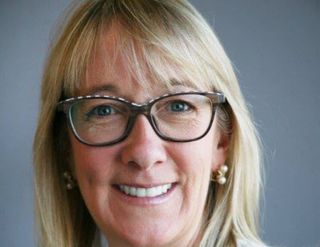An Entrepreneur Finds Joy in Banking

RELATED:MCN's 2016 Money All-Stars: 10 Names to Bank On in Changing Times
Credit Suisse co-head of EMEA investment banking Marisa Drew knew early on that she liked entrepreneurs.
She just didn’t want to be one.
Drew got a taste for investment banking early on through a two-year internship in New York fresh out of the University of Virginia, where she had earned an undergrad degree in finance.
At the end of that internship — which required that she go back to school to get her MBA before she was allowed to return — Drew felt that she hadn’t yet amassed enough life experience. So she began working in the then-nascent field of private equity.
It was there that she met her first Trumps (South African real estate moguls Eddie and Julius, not Donald), and, although she learned a lot, she thought the pace was too slow.
“In banking, you find yourself doing five or six live deals at a time,” Drew said. “Whereas, in private equity, you evaluate a large number of transactions, but you only bid on a small fraction of those deals and you only win a fraction of that. Private equity wasn’t for me.”
Multichannel Newsletter
The smarter way to stay on top of the multichannel video marketplace. Sign up below.
From there, Drew moved into the entrepreneurial space, tapped by a former colleague to run a chain of learning centers in the then-new computer education arena. While again learning a lot about running a successful business and being part of a chain that was growing rapidly, she found it had its drawbacks, too.
SEEKING ‘GOOD STRESS’
“Intellectually, I was no longer challenged once the business was up and running,” Drew said. “And I found there is good stress and bad stress. The stress of solely making every decision, and the daily pressure of making decisions that were life and death for the business, was oppressive stress for me. Plus, I really missed the energy and flow of the markets.”
When someone stepped up to buy the business, Drew went back to school, getting her MBA from The Wharton School at the University of Pennsylvania, and moved on to her next adventure. This time, she found herself back in investment banking, helping to capitalize early- growth companies, which in the late 1980s and early 1990s put her squarely in the middle of telecom and cable.
“Everything came together at that moment,” Drew said. “I just found the perfect job, and honestly, I never looked back.”
Drew engineered financings and deals in the United States, Canada and Latin America for Merrill Lynch and, in 1999, moved to London to help start up its leveraged finance practice. Four years later, in 2003, she was doing the same for Credit Suisse.
She has done several groundbreaking deals, including an exit financing for bankrupt U.K. cable operators NTL and Telewest that contemplated a merger between the two entities before it actually occurred — unprecedented at the time, but commonplace today. Later, Drew also developed a new financing structure for Liberty Global that allowed the cable giant to use fluctuations in its leverage ratio to finance acquisitions.
MALONE’S FAVORITE BANKER
Carving out that new ground won Drew and her team notice. Drew has been called Liberty Global chairman John Malone’s favorite banker in Europe, having done several deals for that company — including its $25.5 billion acquisition of Virgin Media — as well for European telecom giant Altice Group and countless others.
Drew also spends time mentoring women for banking careers and serving as co-chair of the Credit Suisse Diversity Leadership Council and as a trustee of the Credit Suisse Foundation. She is also the founder of the Competitors’ Diversity Forum and a member of the C200, an organization comprised of the top women in business globally.
Despite its reputation as a male-dominated environment, Drew said she believes banking has rewards like few others for women and men. Over the years, she helped build the first cable company in post-Communist Poland and financed the creation of a mobile telephone network in Medellin, Colombia, during the drug wars in that country, providing a communications infrastructure that improved the safety of citizens there.
“How do you put a price on that?” Drew said. “The fact that I feel that I had a hand in building whole industries, I don’t think women should shy away from that opportunity. If I can somehow impart the experience I’ve had or inspire someone to say, ‘This is a career I am thinking hard about and not dismissing it out of hand because on the surface, it seems like a career not suited to women,’ then I feel like I’ve done something to give back for the lucky successes I’ve had.”
